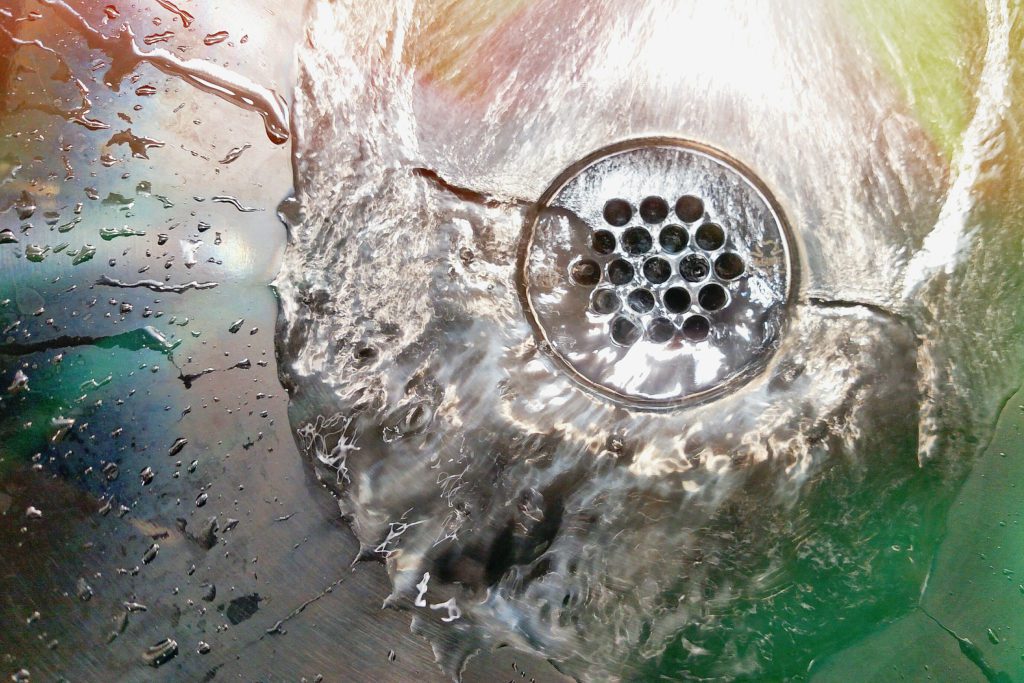Nobody likes dealing with a clogged kitchen drain, and if left untreated it can lead to a plumbing nightmare. Fortunately, there are steps you can take to prevent kitchen drain clogs from ever occurring. In this blog post, we will discuss the best methods for preventing kitchen clogs, as well as when it’s best to call in a professional plumber. With the right information and prevention tips, you can keep your kitchen drain clean and clog-free!
Understanding Common Causes of Kitchen Drain Clogs
Kitchen drains can easily become clogged due to a variety of reasons. One common cause is food particles and grease buildup. When you rinse dishes or wash your hands, small bits of food can make their way into the drain. Over time, these particles can accumulate and create a clog. Grease is another culprit, as it can solidify and stick to the inside of the pipes, restricting water flow.
Another common cause of kitchen drain clogs is improper disposal of waste. Coffee grounds, eggshells, and fibrous vegetables like celery can all cause blockages. These items do not break down easily and can get caught in the pipes, leading to clogs.
Additionally, hard water can contribute to kitchen sink clogs. Minerals present in hard water can build up inside the pipes, reducing water flow and eventually causing a blockage.
By understanding the common causes of kitchen drain clogs, you can take proactive steps to keep your drains clear and avoid potential plumbing issues.
Simple Steps to Preventing Kitchen Drain Clogs
Preventing kitchen drain clogs doesn’t have to be a complicated task. With just a few simple steps, you can keep your kitchen drains clear and avoid the hassle of dealing with kitchen clogs.
First, always remember to use a drain strainer or stopper in your sink. This will help catch any food particles or debris before they have a chance to make their way into your drains.
Avoid pouring grease or oil down the drain as it can solidify and cause blockages. Instead, let it cool and dispose of it in the trash. Regularly flushing your drains with hot water and baking soda can also help prevent build-up. Simply pour a mixture of hot water and baking soda down the drain once a week to keep things flowing smoothly.
Finally, be mindful of what you put in your garbage disposal. Avoid putting fibrous or hard-to-break-down items like coffee grounds and eggshells down the disposal, as they can cause kitchen sink clogs. By following these simple steps, you can keep your kitchen drains clear and avoid any plumbing headaches in the future.
Essential Tools for Unclogging a Kitchen Drain
When it comes to unclogging a kitchen drain, having the right tools can make all the difference. Here are some essential tools that can help you tackle the job like a pro.
First, you’ll need a plunger. This classic tool is great for dislodging stubborn clogs. Simply place the plunger over the drain and give it a few firm pumps to create suction. Then, pull up sharply to release the suction and hopefully, the clog.
Next, a drain snake or auger can be a lifesaver. This long, flexible tool can reach deep into the pipes to break up and remove blockages. Simply insert the snake into the drain and twist it while pushing it in. Once you feel resistance, pull it back out, and hopefully, you’ll have dislodged the clog.
For more stubborn clogs, a drain cleaner can be a helpful tool. Be sure to choose a drain cleaner specifically designed for kitchen drains, as some chemicals can damage pipes. Follow the instructions carefully and use it sparingly.
And finally, having a bucket and a pair of rubber gloves on hand can help with any messy clean-up that may be required.
With these essential tools, you’ll be well-equipped to tackle most kitchen drain clogs. Just remember to use caution and, if needed, don’t hesitate to call in a professional plumber from ACE Home Services for help.
When to Call in a Professional Plumber for a Kitchen Drain Clog
While prevention is key, sometimes kitchen drain clogs are unavoidable. If you’ve tried all the DIY methods and still can’t clear the clog, it may be time to call in a professional plumber from ACE Home Services. But how do you know when it’s necessary?
Here are some signs that indicate it’s time to bring in the experts:
- Recurring clogs: If your kitchen drain is constantly getting clogged, it could be a sign of a larger issue. A professional plumber can identify and fix the underlying problem, preventing future clogs.
- Slow drainage: If water is draining slowly or not at all, there could be a blockage deeper in the pipes. A plumber has the tools and expertise to locate and remove the obstruction efficiently.
- Foul odors: Persistent odors emanating from your kitchen drain could indicate a buildup of organic material or even a broken sewer line. A professional plumber can identify the source of the odor and address it properly.
- Multiple clogged drains: If multiple drains in your kitchen are clogged simultaneously, it may be a sign of a more significant plumbing issue. A plumber can diagnose the problem and provide a comprehensive solution.
Remember, it’s better to call a professional ACE Home Services plumber sooner rather than later to prevent further damage and avoid costly repairs. They have the knowledge and experience to tackle even the most stubborn kitchen drain clogs, ensuring your plumbing system functions smoothly once again.

